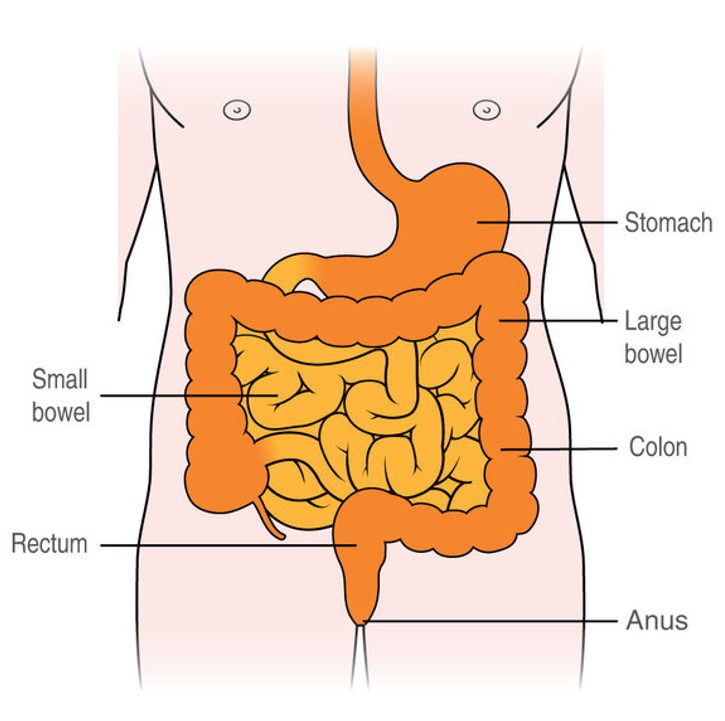Bowel cancer is a general term for cancer that begins in the large bowel. Depending on where the cancer starts, bowel cancer is sometimes called colon or rectal cancer.
Around 42,300 people are diagnosed with bowel cancer in the UK each year. It is the 4th most common cancer in the UK. Most people diagnosed with it are over the age of 60.
Meet the Gastrointestinal (GI) team.
Am I at risk?
The risk of developing bowel cancer depends on many things including age, genetics and lifestyle factors.
Risk factors for bowel cancer include:
• Eating too much red and processed meat
• Eating too little fibre
• Being overweight and obese
• Undertaking little physical activity
• Smoking
• Drinking excessive alcohol
• Age – bowel cancer is more common in people aged 75 or over
Other risks include certain medical or inherited conditions.
For information on who is at risk of bowel cancer, please follow this link.
Symptoms of bowel cancer
Symptoms of bowel cancer include:
• Persistent blood in your poo – that happens for no obvious reason or is associated with a change in bowel habit
• A persistent change in your bowel habit – which is usually having to poo more and your poo may also become more runny
• Persistent lower abdominal (tummy) pain, bloating or discomfort – that’s always caused by eating and may be associated with loss of appetite or significant unintentional weight loss
• A feeling of not emptying your bowel properly after you poo
• Unexplained tiredness, dizziness or breathlessness
• Anaemia (a lower level than normal of red blood cells
Some cancers can cause a blockage in the bowel which can result in a feeling of constipation and bloating, tummy pain and vomiting.
Most people with these symptoms do not have bowel cancer. Other health problems can cause similar. These symptoms should be taken more seriously as you get older and when they persist.
Bowel cancer screening
To detect cases of bowel cancer sooner, the NHS offers 2 types of bowel cancer screening to adults registered with a GP in England:
• All men and women aged 56 to 74 are invited to carry out a faecal immunochemical test (FIT) or faecal occult blood (FOB) test. Every 2 years, they’re sent a home test kit, which is used to collect a poo sample. If you’re 75 or over, you can ask for this test by calling the freephone helpline on 0800 707 60 60.
Bowel cancer screening helps in the earlier detection of cancer which may mean improved outcomes. Removing any polyps – small growths that can develop on the inner lining of your bottom (rectum) – found in bowel scope screening can prevent cancer.
However, there are a few risks, as well as benefits. It’s up to you to decide if you want to have it. Read about bowel cancer screening, what the different possible results mean, and the potential risks.
Patient information
For more information from Macmillan regarding bowel cancer, please follow this link.
For more information from Cancer Research UK regarding bowel cancer, please follow this link.
